Most recently, the popular Telegram messenger was blocked, but did it really happen? And what should users who bought a smartphone do after being locked?

Part one: Is Telegram blocked?
The results of blocking Telegram are quite curious and unpredictable. The blocking has touched both Google services (many have naughty Youtube), and private business. Many people used Telegram channels as a corporate network, trading platforms, hotlines for communicating with clients, and overnight were deprived of all this. Nobody still knows the exact figure of the damage in the country, but some experts scare the figure of 2 billion rubles.
How well does blocking actually work? Let's check. If you have just bought a new smartphone, you can download Telegram from Google Play. Why the banned application is there is still completely unclear.
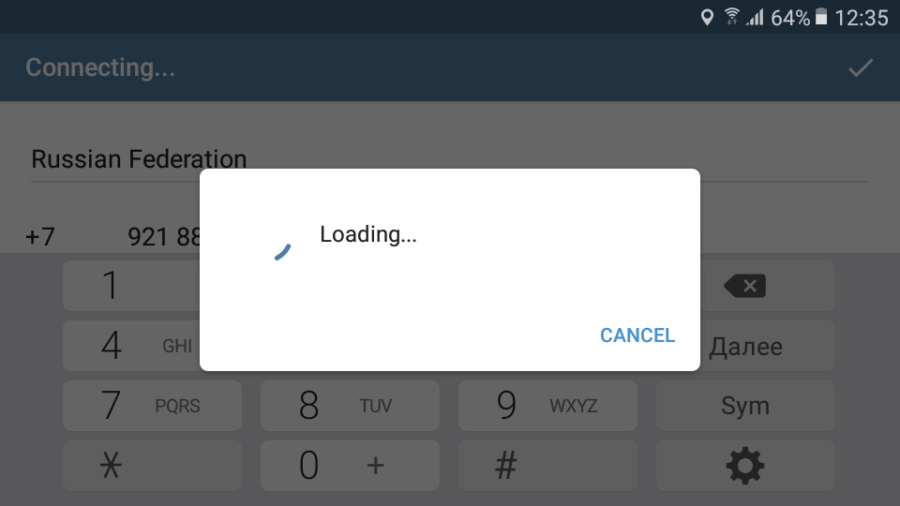
Blocking manifests itself immediately after entering the phone number during registration. Eternal waiting for a confirmation code. From this program window there is no way to enter the application settings and connect the bypass tool through the standard settings menu. So what can you do? As soon as the news about the probable blocking of Telegram appeared, numerous free Proxy appeared to bypass it. The procedure for bypassing the blocking occurs by simply clicking on the link, after which the Telegram running in the background picks it up and asks the user if he will use the new connection type. Let's check if this works in conditions when the entrance or registration in Telegram has not yet occurred. Launch Google Chrome, enter a request like 'proxy Telegram', search and find. When clicking on the link, we see a disappointing picture:
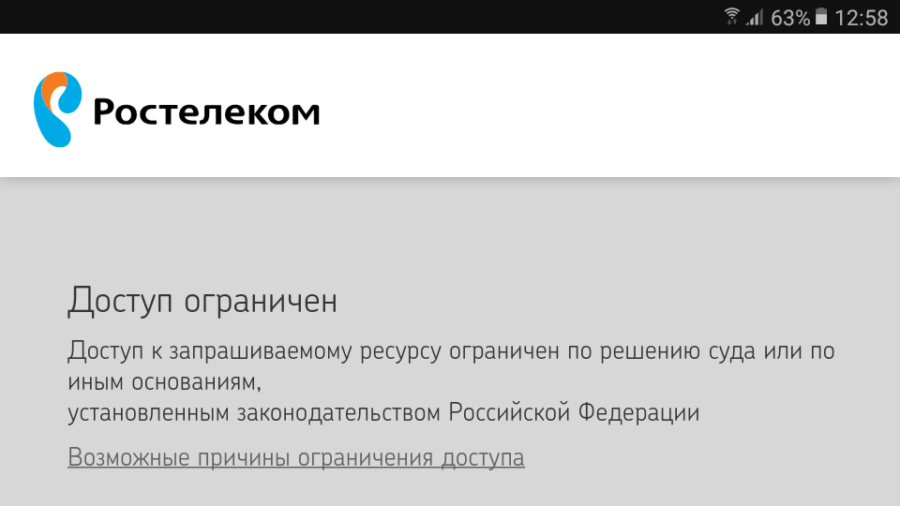
Here it must be said that the connection was made via home Wi-Fi with the SIM card removed, when entering through the Megafon 4G the Proxy link was closed with a banner with a message about blocking right on the site. It was decided to try a third-party browser, for which the Opera mini application was installed:
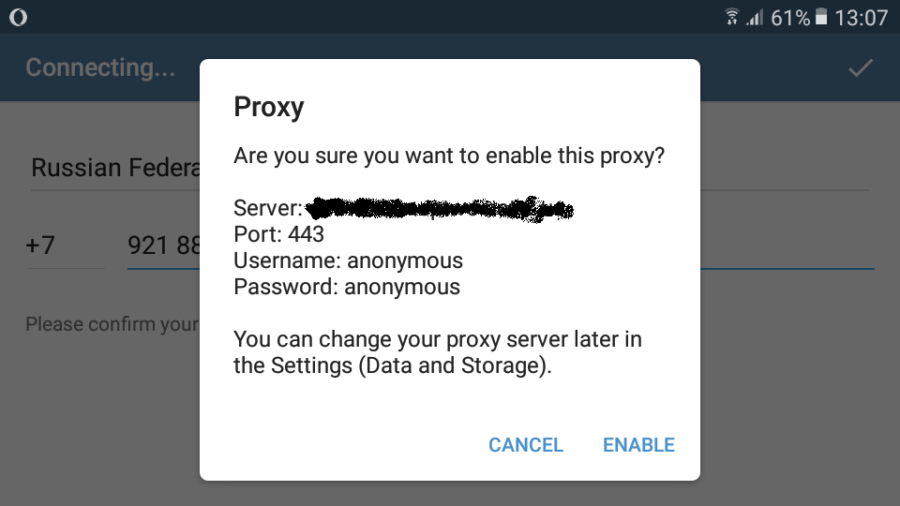
The link opened and Telegram immediately offered to enable Proxy, click 'Enable'. We turn off the smartphone, insert our SIM-card, turn it on … Everything works, the Telegram verification code was received instantly, registration was successful, everything works.
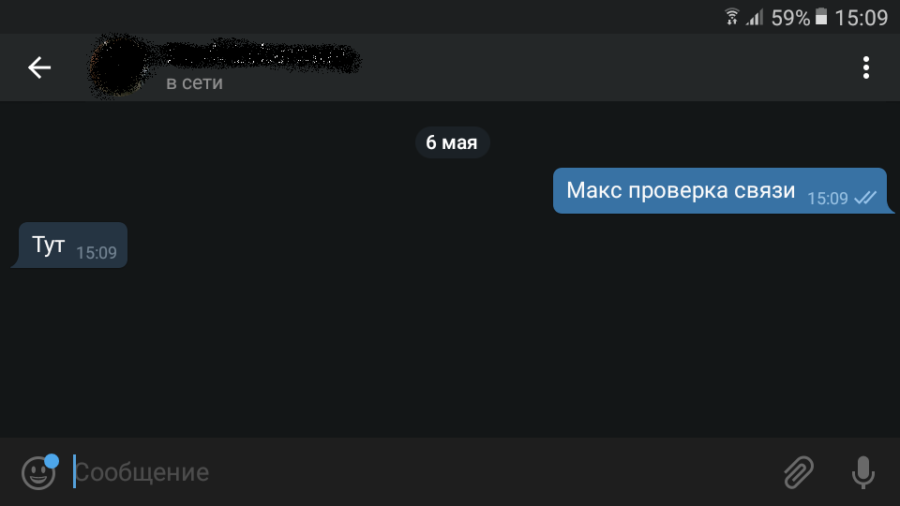
Thoughts on all of this:
- It seems that the Google Chrome app (Google search) clearly follows all the instructions of Roskomnadzor, but the Google Play app does not.
- For a real blocking, the government will have to convince all communication providers (and browser owners) to add such links to its 'blacklist'.
- If you fulfill point 2, then the Tor browser will remain, which, in principle, does not obey the orders of any states. And blocking will not work. The same goes for using a third-party VPN service that was not used due to unwillingness to watch unnecessary ads later.
- In order to actually block Telegram, Roskomnadzor will have to prohibit all circumvention tools such as VPN and Proxy. That smacks of a national firewall.
The experiment was carried out on two smartphones. This is the brand new Ginzzu RS8501 and the good old Samsung Galaxy J2 Prime. Telegram has never been installed on both smartphones before. Friends, if you want to try it yourself, then for the purity of the experiment you will have to reset your phone to factory settings, erasing all entries in the system partition and deleting the application cache. As you can see, using absolutely legal means, you can bypass the Roskomnadzor blocking, even without the help of the 'Turbo VPN' VPN service recommended by Telegram itself. If everything worked for you and so, then everyone will understand if in the comments you do not share your place of stay and the name of the communication provider.
Part two: Why can't Telegram exist in Russia?
You need to understand the main thing, if Roskomnadzor is not trying to ban the messenger, then:
-The state already has the keys to the black door of the messenger.
-Considering the centralized management of this application from the manufacturer's side (all data flows into one place / one group of servers), special services have no problems intercepting and decrypting messages.
-Manufacturer of the messenger willingly makes contact with special services and provides information on specific correspondence upon an official request.
The latter circumstance fully fits into the framework of the law. For example, here is an excerpt from Article 13, Clause 4 of the Federal 'Law on Police'. Police officers have the right to:
'In connection with investigated criminal cases and pending cases of administrative offenses … to receive, free of charge, upon a reasoned request from authorized police officers from state and municipal bodies, public associations, organizations, officials and citizens, information, certificates, documents (their copies ), other necessary information, including personal data of citizens'
There are similar points in the laws that regulate the work of all law enforcement agencies. Do you already understand, friends? In the Russian Federation, no organization can legally refuse to issue all the necessary information (including information from third parties) at the official request of the state. If in the Criminal Investigation Department (for example) a check is carried out at the request of a citizen, where, as confirmation of his words, one of the parties indicates the correspondence in Telegram, then the police officer is obliged to check this and take an extract / explanation from the Telegram official. Most likely, the owner of Telegram, Pavel Durov, repeatedly ignored such requests, justifying this with a technical impossibility. And the state machine could not but demand a check of the technical documentation and the actual state of what we call the 'Telegram messenger' to confirm the words of Pavel Durov. And the court could not help blocking Telegram. And Yarovaya's law with other parliamentary delights has absolutely nothing to do with it. And who made the main mistake in this whole situation? Unfortunately, it was Pavel Durov himself, who agreed to add the Telegram messenger to the Roskomnadzor register and, unwillingly, became a resident of the Russian Federation and an official.
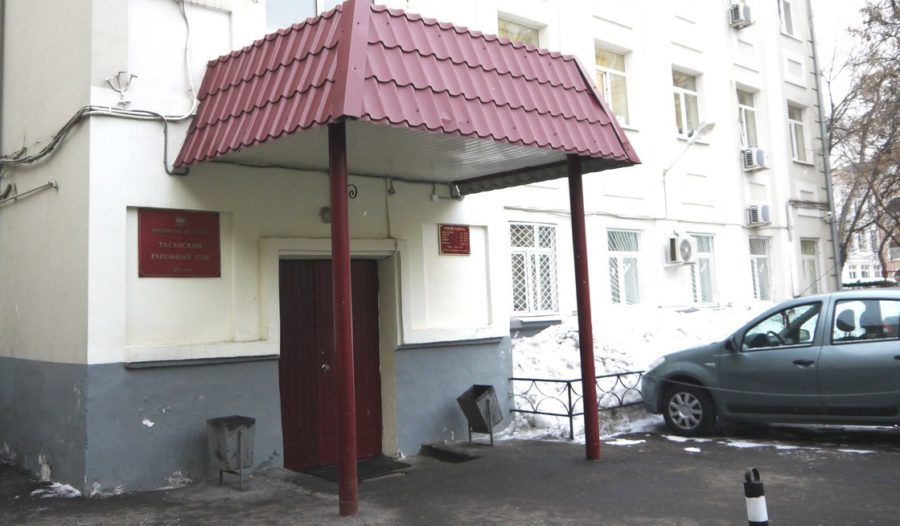
Tagansky court is the place of many tragic events
The curious can themselves, and not through the crooked lens of view of biased journalists, get acquainted with the decision of the court. To do this, follow the link, download and read the decision of the Moscow City Court.
'The law is a skewer that turns the entire state kebab' – ©
Part three: Why is Telegram so unique? And are there any alternatives?
Strengths of Telegram:
The first is that the messenger has a chat system. You can assign your own names to these channels and search for them within the messenger using the search bar. Each channel has a unique link that you can post anywhere.
Second, the application is undemanding to the hardware of the device and works stably even on inexpensive devices (with 1 GB of RAM or more).
Third, the messenger offers complete privacy to the participants of the correspondence, if the private conversation mode is selected.
Fourth, the application does not impose its services, does not offer to buy anything, etc.
No weaknesses were found.
What instant messengers have similar qualities? It seems strange, but absolutely nothing comes to mind. Maybe, you know? On this pessimistic note, we will have to finish debriefing paper planes.

Friends, please tell us in the comments about your version of the development of events that led to the blocking of Telegrams. Even if these versions at first glance seem to be pure conspiracy theories. I ask you to approach this matter reasonably and answer the question in the spirit of 'Telegrams were blocked because …'.
